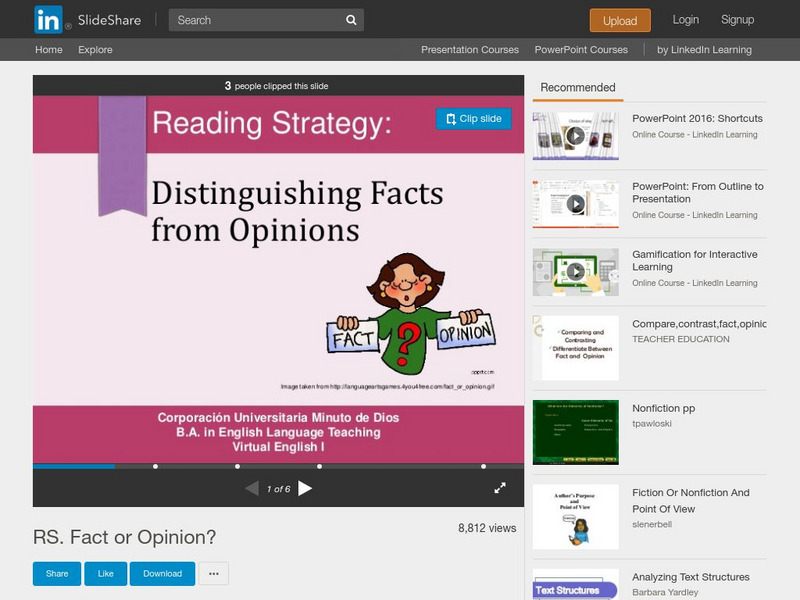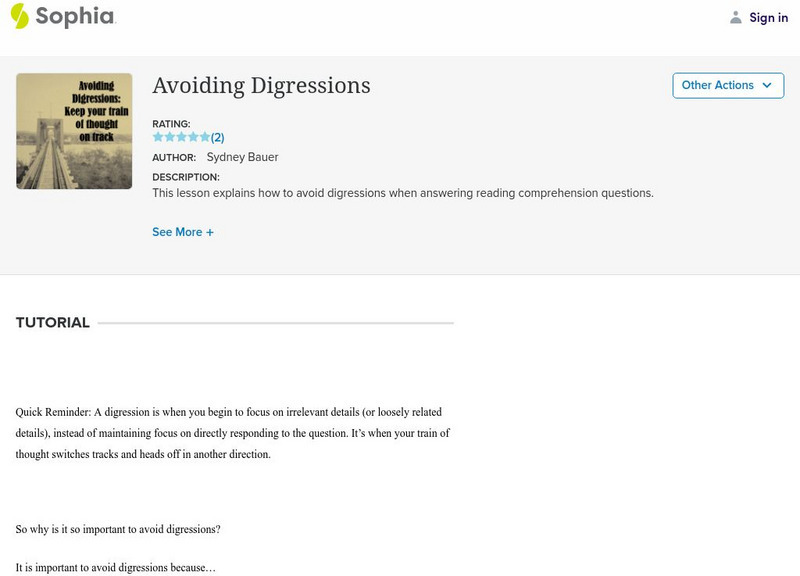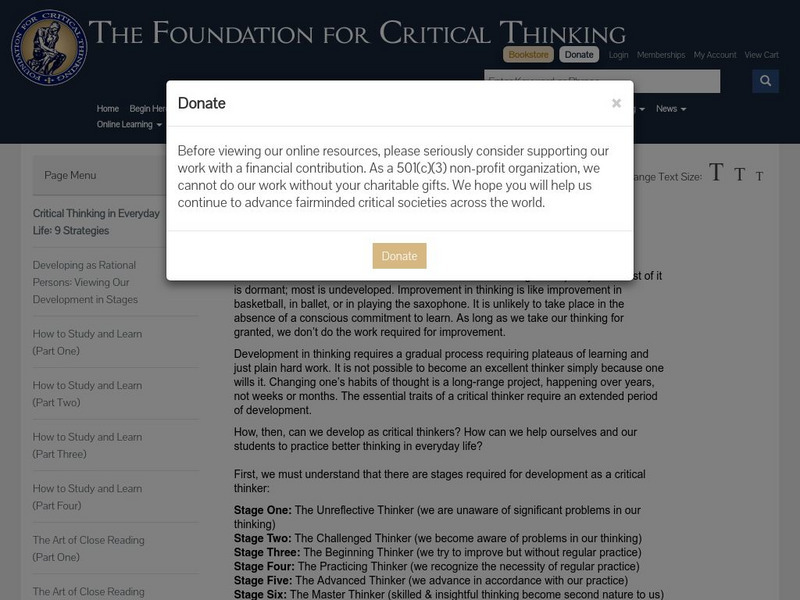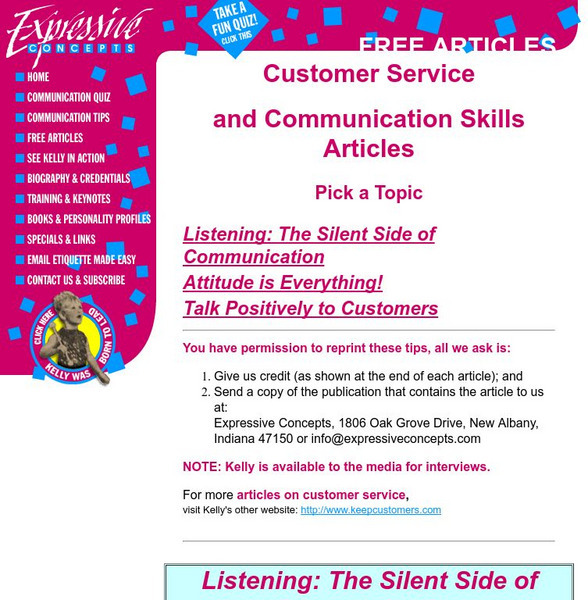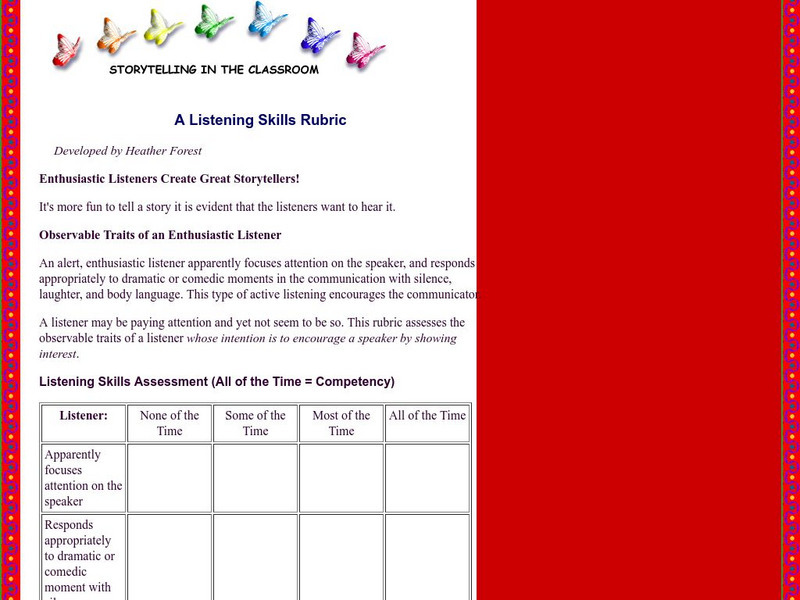Other
Medium: Helping Students Ask Better Questions by Creating a Culture of Inquiry
We want to see kids asking tons of questions. This is how students grow into creative, critical thinkers. This article by John Spencer gives multiple ways teachers can foster an environment in which students feel comfortable asking...
Love To Know Media
Your Dictionary: Examples of Open Ended and Closed Ended Questions
Explains the difference between open and closed questions. Gives examples and situations where each might be used.
Better Lesson
Better Lesson: Come Prepared for Discussions
This is a collection of 14 discussion opportunities. Review the key ideas expressed and draw conclusions in light of information and knowledge gained from the discussions.
PBS
Pbs Learning Media: Lesson Plan: Effective Interview Questions
Explore effective interview questions. By choosing questions that are open-ended and important to them, students can learn great interview skills that can be helpful in future college and job interviews.
AdLit
Ad lit.org: Classroom Strategies: Question Answer Relationship (Qar)
Question-Answer relationship (QAR) is a strategy to be used after students have read. QAR teaches students how to decipher what types of questions they are being asked and where to find the answers to them. Four types of questions are...
Other
Teaching Critical Thinking Skills
It is increasingly important to teach students how to develop their critical thinking abilities. This site lists some ideas and strategies that can help teach them to improve their critical thinking skills.
Other
Usa Today: Usa Weekend/small Talk Is a Big Deal
Article on the importance of small talk, based on information from Bernardo Carducci, author of "the Pocket Guide to Making Successful Small Talk." At the end of the article you'll find "5 steps to making smart small talk." It also...
Other
Rms Consulting: Winning Interview Strategies
Provides some general guidelines that a person should follow when going for a job interview.
Other
Speech Language Resources: Inference and Reading: A Guide for School Age Students
An explanation of inferences and how to make them. Examples and links to additional learning exercises are included.
Other
Rmit University: Rmit Counselling Service: Talking to People [Pdf]
This material on people skills discusses how to develop and maintain people skills. It also contains a section in the middle about the importance of receiving messages (listening) and common barriers to doing so.
Family Education
Family Education: Improving Your Child's Thinking Skills
By asking the right kinds of questions, you can help improve a students thinking skills. This site lists several ideas and types of questions that can help develop a child's critical thinking skills.
Other
Bowling Green State U: Informative Speech Topic Ideas
This site offers a brief list of potential informative speech topics. Though the list is brief, use the suggestions as inspiration. Also includes helpful reminders and common topics to avoid.
Other
Reading Comprehension: Question Answer Relationships
If you need help working with your students on questioning a text or if you are working on higher-level questioning skills, this is a simple and helpful site. Printable resources available from site.
Other
How to Study: Good Listening in Class
Eight tips on how to improve your listening skills in the classroom so that you gain more from lectures and discussions.
Sophia Learning
Sophia: Incorporating Questions in Writing
This lesson goes over how to incorporate questions in a composition.
TES Global
Blendspace: Reasoning, Deduction, and Your Next Speech
A learning module that includes eight links to pictures, websites, and activities for using reasoning and deduction in a speech.
TES Global
Blendspace: Who? What? When? Where? Why? How?
An eleven-part learning module with links to websites, an image, and a video about using questioning skills to research and write about one's family history.
Tom Richey
Slide Share: Facts and Opinions
This slideshow focuses on facts and opinions; it provides definitions, examples, and articles for practice.
Other
Live Career: Quintessential Careers: Information Interview Tutorial
This tutorial from Quintessential Careers offers a discussion of informational interviewing and how it is a networking tool. Loaded with helpful and detailed tips. SL.9-10.6 Adapt to task/formal
Sophia Learning
Sophia: Avoiding Digressions
This lesson explains how to avoid digressions when answering reading comprehension questions.
Other
Critical Thinking in Everyday Life: 9 Strategies
This resource presents strategies to help improve your critical thinking skills, this site provides useful information for applying these skills to your everyday life.
Other
Synergy Publishing: Listening: The Silent Side of Communication
Five steps to improving listening skills so that you understand what someone is trying to communicate to you and respond effectively.
Other
Story Arts: Listening Skills Table for Storytelling
Two rubrics to assess a listener's attention during a storytelling session. The first is used to record frequency of audience reactions. The second is used to access the listener's level of comprehension.
Other
Dr. Wheeler's Website: Rhetoric
A definition of Rhetoric along with links to additional information on logos, ethos, and pathos. Common Rhetorical Mistakes and an explanation of how rhetoric works are also provided.
















